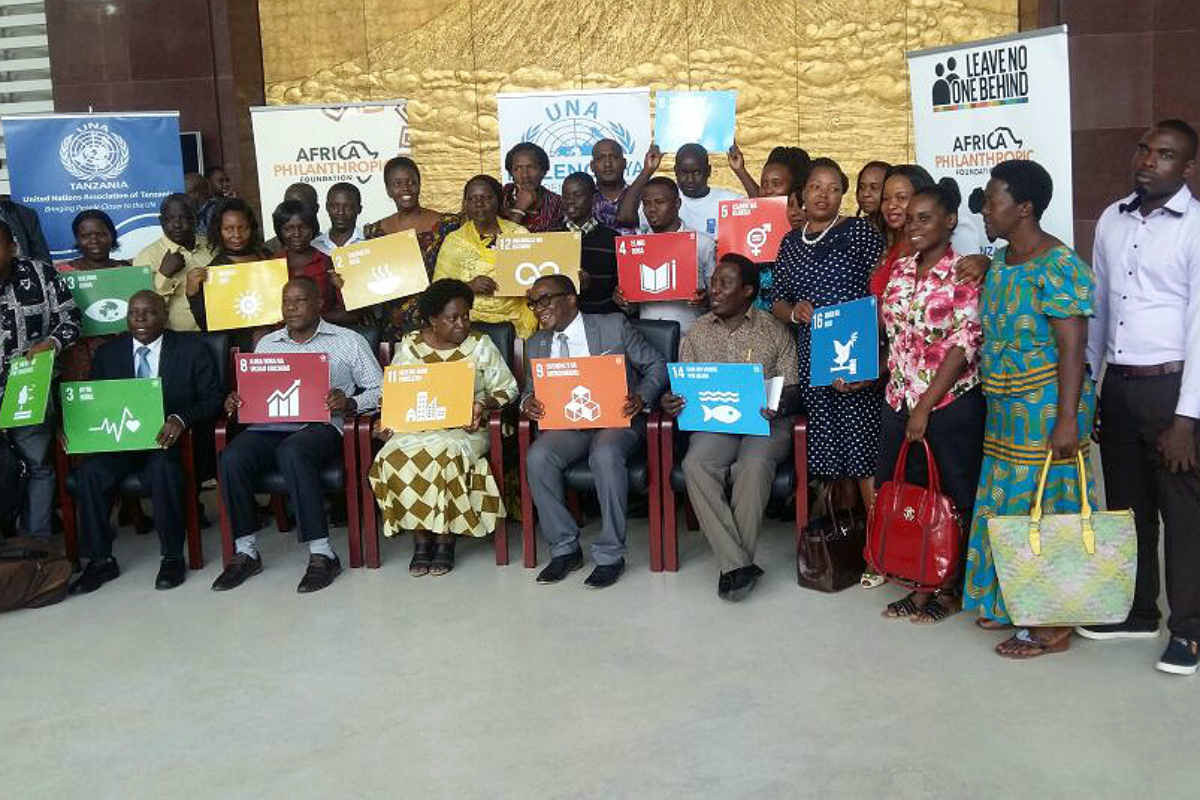Leaving no one behind is an underlying principle of the SDGs. Its aim is to ensure that development throughout the world has positive impacts on the poorest and most marginalized members of society.
This is to ensure that neglected groups of people especially those residing in the rural areas are targeted when implementing the SDG at all levels.
Airing out their voices during Leave No One Behind National Dialogue organized by the Africa Philanthropic Foundation in early November in Dar es Salaam, special groups such as people with disabilities, elderly, youth, women, and people living with HIV/AIDS argued the government of Tanzania and international community to fulfill their commitments made during endorsement of SDGs.
***
For these groups, the government of Tanzania has the primary responsibility in implementing SDGs. It should listen and tackle the need of these groups, ensure that local resources are mobilized for those who are most vulnerable and that their needs are reflected in the local development plans and public policies.
This will happen only if the SDGs will be integrated in the national plans at all levels, having effective implementation and monitoring mechanism, and pro-poor policies and legislations are put in place.
Affirmative actions should be taken to mitigate climate change effects as it affects among other things access to safe water in the rural areas and most affected are women and girls.
On the other hand the government should provide palliative care and treatments for people living with HIV/AIDS, social security for elderly people, education for girls and employment for youth and people with disabilities.
***
CSOs have their own role in the localization of the SDGs. They should listen to the poor and most vulnerable and be aware of what is happening on the ground. This requires CSOs to be proactive in gathering information and interacting directly with communities.
This will happen if CSOs will create opportunities, spaces and platforms for engaging with these groups in order to promote genuine dialogues, build community awareness and develop strong relationships. It is important to listen and consider the solutions identified by these groups.
CSOs should build strong partnership at local and international level to airing out the voices of the poorest and marginalized groups for global solidarity.
